“The greatness of a nation and its moral progress can be judged by the way its animals are treated.” – Mahatma Gandhi
Welcome to our guide on macaw parrot care essentials and fun facts! Macaws are stunning creatures that have captured the hearts of people worldwide. Their vibrant colors and playful nature make them fascinating companions, but they also require special care and attention. In this article, we will explore everything you need to know about macaw parrot care and discover some interesting facts about these magnificent birds.
Key Takeaways:
- Macaws are colorful and entertaining birds that require committed care.
- Proper nutrition, social interaction, and mental stimulation are vital for their well-being.
- Macaws have a long lifespan, with some living up to 80 years or more.
- Understanding macaw behavior and training them positively is essential.
- Creating a safe environment and providing regular veterinary care are crucial for their health.
Macaw Parrot Species and Sizes
Macaws are known for their stunning colors and diverse species. These magnificent parrots come in 17 different species, each with its own unique characteristics and sizes. From the largest macaws to the smaller mini macaws, let’s explore the fascinating world of macaw species and their sizes.
Large Macaws
Among the macaw parrot species, the hyacinth macaw reigns as the largest of them all. This majestic bird can reach impressive lengths of up to three and a half feet, with a wingspan spanning around 60 inches. Its vibrant blue feathers and strong presence make it an awe-inspiring sight. Large macaws like the hyacinth macaw require spacious enclosures to accommodate their size and energetic nature.
Alongside the hyacinth macaw, other large macaw species include the majestic scarlet macaw and the striking blue and gold macaw. These colorful giants have a commanding presence and are known for their distinct beauty and intelligence.
Mini Macaws
On the other end of the size spectrum, we have the mini macaws. These adorable parrots are smaller in size, growing up to about 12 inches in length. Despite their smaller stature, mini macaws are no less charismatic and captivating. They make up for their size with their playful and outgoing personalities, making them popular pets among macaw enthusiasts.
Mini macaw species include the vibrant yellow-collared macaw and the fiery red-fronted macaw. Just like their larger counterparts, mini macaws possess the distinctive rings of bare skin around their eyes, which are a characteristic feature of all macaw species.
While macaw species vary in size, they share common traits such as their striking colors and engaging personalities. Hybrid macaws, which are created through breeding, display variations in color and are often sought after by pet owners.
Here is a visual representation of some macaw species and their sizes:
| Macaw Species | Size |
|---|---|
| Hyacinth Macaw | Up to 3.5 feet |
| Scarlet Macaw | Around 2 feet |
| Blue and Gold Macaw | Around 2 feet |
| Yellow-collared Macaw | Around 12 inches |
| Red-fronted Macaw | Around 12 inches |
Macaws, whether large or mini, captivate us with their vibrant colors and engaging personalities. Each species offers a unique experience, providing endless joy and companionship to their owners.
Macaw Parrot Lifespan and Care Commitment
Macaws are fascinating creatures with a remarkable lifespan. When given proper care, these magnificent parrots can live for an average of 60 years, and some even reach the grand age of 80 years or more. The longevity of macaws highlights the significant commitment required from potential owners.
As a macaw owner, it’s crucial to understand that your feathered companion may outlive you. It’s essential to make arrangements for their care in the long term, ensuring they receive the love and attention they deserve. Consider including provisions in your will or finding a trustworthy caretaker who can ensure their well-being.
Caring for a macaw involves providing them with a spacious enclosure that allows them to stretch their wings and move around comfortably. Mental stimulation is essential for these intelligent birds, so be sure to offer a variety of toys that challenge their curiosity and keep them engaged.
Diet plays a crucial role in the overall health and well-being of macaws. A balanced diet should include pelleted food, such as brands like Harrison’s, Zupreme, Roudybush, or Lafeber, which provide the essential nutrients macaws need. Additionally, fresh fruits and vegetables should be included to ensure a varied and nutritious diet.
To monitor their health, regular veterinary check-ups are necessary. Experienced avian veterinarians can provide the necessary care and detect any potential health issues early on. These check-ups involve examinations, blood tests, and other preventive measures to keep your macaw in optimal health.
Macaws are magnificent creatures with extensive lifespans, requiring a high level of commitment and dedicated care from their owners. By providing a spacious enclosure, mental stimulation, a balanced diet, and regular veterinary check-ups, you can ensure that your macaw lives a long and happy life.
The Lifespan of Macaw Parrots:
Macaws: approximately 60 years with some reaching up to 80 years or more
Macaw Parrot Care Essentials:
- Provide a spacious enclosure for ample exercise and comfort
- Offer a variety of toys for mental stimulation and entertainment
- Feed a balanced diet of pelleted food and fresh fruits and vegetables
- Schedule regular veterinary check-ups for preventive care
Proper care and attention are crucial for the well-being of your macaw parrot, ensuring they live a long and fulfilling life.
Macaw Parrot Behavior and Socialization
Macaws are highly intelligent and social birds that thrive on social interaction and mental stimulation. Their behaviors and vocalizations play a crucial role in communicating with their flock and owners. These vibrant birds are known for their ability to mimic sounds, including human voices, adding an entertaining element to their personalities. However, when macaws are not properly socialized or become bored, they may exhibit undesirable behaviors such as feather destructive behavior or excessive chewing. It is essential to provide them with ample toys, training, and socialization opportunities to prevent these behaviors from developing.
Macaws can be successfully socialized with multiple people, including children and other pets, but supervision is necessary to ensure the safety of both the macaw and those around them. By exposing them to different environments and experiences, macaws can become comfortable and adaptable members of the household. Socialization also helps them develop a bond and trust with their owners, leading to a harmonious and fulfilling relationship.
Creating an enriching environment for macaws is vital for their overall well-being. Providing a variety of toys that are safe and stimulating can alleviate boredom and prevent destructive behaviors. Macaws enjoy toys that require problem-solving and provide opportunities for mental and physical engagement. Toys made of sturdy materials, such as wood and acrylic, are ideal for their strong beaks.
Training is another important aspect of macaw parrot behavior and socialization. Macaws are highly trainable and can learn a wide range of tricks and commands. Positive reinforcement techniques, such as offering treats and praise, are effective in shaping their behavior. Consistency and patience are key when training macaws, as it may take time for them to learn and respond to commands.
Macaws are highly intelligent and social birds that thrive on social interaction and mental stimulation.
By understanding and addressing their behavioral needs, macaw owners can cultivate a positive and fulfilling relationship with these magnificent birds.
Care Tips for Macaw Parrot Behavior and Socialization
- Provide a variety of safe and stimulating toys to prevent boredom and destructive behaviors.
- Expose macaws to different environments and experiences to promote adaptability and socialization.
- Supervise interactions with children and other pets to ensure the safety of both the macaw and others.
- Use positive reinforcement techniques, such as treats and praise, to train and shape desired behaviors.
Macaw Parrot Training and Taming
Training and taming a macaw parrot can be an exciting and rewarding experience. These intelligent birds have the ability to learn tricks and even perform in shows, showcasing their remarkable talents. However, it’s important to approach training with patience, consistency, and a firm understanding of their unique needs.
Taming a macaw parrot involves building trust and a strong bond between the bird and its owner. Positive reinforcement is key in establishing this relationship, rewarding good behavior with treats, praise, and affection. The process should be gradual, allowing the macaw to become comfortable with human interaction at its own pace.
Start by spending time near the macaw’s enclosure, speaking softly and offering small treats to create positive associations. Once the parrot becomes accustomed to your presence, begin introducing gentle handling, such as offering your hand for the bird to perch on. This should be done in a calm and non-threatening manner, avoiding sudden movements that may startle the macaw.
Expose the macaw to various situations to ensure it becomes well-adjusted and confident. Take the bird for regular visits to the veterinarian for check-ups, wing and nail trims, and other necessary procedures. This exposure helps the macaw become familiar with different environments and reduces stress during future vet visits.
It’s important to remember that each macaw has its own unique personality and may respond differently to training methods. Be patient and adapt your approach to suit the individual bird’s needs. Trust and a positive training atmosphere are essential for a macaw’s well-being and the success of the training process.
Tips for Successful Macaw Parrot Training:
- Use positive reinforcement, such as treats, praise, and affection, to reward good behavior.
- Be consistent in your training approach and always use a firm but gentle tone.
- Start with basic commands, like “step up” or “step down,” before progressing to more complex tricks.
- Use a clicker or a distinct word to mark desired behaviors, signaling to the macaw that it will be rewarded.
- Keep training sessions short but frequent, as macaws have short attention spans.
- Provide mental stimulation with toys, puzzles, and interactive games to keep the macaw engaged and entertained.
Remember, training should be based on trust and positive reinforcement, never involving punishment or negative techniques. Using force or punishment can damage the bond between the macaw and its owner, leading to behavioral issues and a breakdown in the training process.
Training Progress Tracker:
| Training Command | Training Method | Progress Level |
|---|---|---|
| Step Up | Positive reinforcement and target training | In progress |
| Wave | Modeling and repetition | Mastered |
| Speak | Audio cues and reward-based training | Working on it |
Tracking your macaw’s training progress can help you monitor their development and identify areas that need additional attention. It’s important to celebrate small victories and remain patient throughout the training journey. With time, dedication, and a positive training approach, you can unlock the full potential of your macaw’s intelligence, establishing a deeper bond and creating a harmonious relationship.
Macaw Parrot Diet and Feeding
When it comes to the diet of macaw parrots, it is important to provide them with a balanced and nutritious meal plan to support their health and well-being. In the wild, macaws are herbivores and consume a variety of foods, including seeds, nuts, fruits, and flowers. When kept in captivity, it is essential to replicate their natural diet as closely as possible.
To ensure optimal nutrition, macaw parrots’ daily diet should consist of:
- 75% high-quality pelleted food, such as Harrison’s, Zupreme, Roudybush, or Lafeber brands. These pelleted foods are specially formulated to meet the nutritional needs of macaws.
- 15% fresh vegetables, including leafy greens, carrots, bell peppers, and broccoli. This provides essential vitamins and minerals.
- Legumes, grains, and cooked whole grains should make up another 15% of their diet. These can include lentils, cooked quinoa, whole wheat pasta, and brown rice.
- A small portion, around 10%, can be dedicated to treats. Nuts, seeds, and table scraps can be given occasionally as a special reward.
It is important to monitor their food intake and adjust portions accordingly to prevent obesity or malnutrition. Macaws have a natural tendency to overeat, so portion control is crucial. Regularly weighing them can help ensure they maintain a healthy weight.
Remember: Always provide fresh, clean water for your macaw parrot to stay hydrated.
Feeding Schedule
Establishing a consistent feeding schedule is vital for the macaw parrot’s well-being. Aim to provide food at the same time each day to help maintain their digestive health and prevent picky eating behaviors. Offer fresh fruits and vegetables in the morning and pellets in the afternoon. Remove any uneaten fresh food after a few hours to maintain cleanliness.
Additional Considerations
While offering a balanced diet is essential, it is also important to incorporate mental stimulation into their feeding routine. Macaw parrots are intelligent birds and enjoy engaging with their food. Providing foraging toys, puzzle feeders, or hiding treats within their enclosure can encourage their natural foraging instincts and prevent boredom.
Maintaining a nutritious diet is crucial to the overall health and happiness of macaw parrots. By providing a balanced meal plan, monitoring food portions, and offering mental stimulation during feeding times, we can ensure that these vibrant birds thrive in our care.
Macaw Parrot Housing and Enclosure
Macaws are large and energetic birds that require a spacious and secure enclosure to thrive in captivity. Providing them with the right housing is essential for their physical and mental well-being.
The enclosure should be spacious enough for the macaw to fully extend its wings without touching the sides. This allows them to engage in natural behaviors like stretching and flapping their wings. The bar spacing of the enclosure should be 1 to 1.5 inches to prevent the macaw from getting their head or feet stuck.
We recommend California King Cages for larger macaws, as they provide ample space for the bird to move around comfortably. Smaller macaws can be housed in the #406 model, which still offers enough room for their needs.
When setting up the enclosure, be sure to include multiple perches at various heights. Macaws enjoy climbing, so providing different levels allows them to exercise and explore their environment. A softer perch should be placed at the highest point for sleeping and resting.
Furthermore, it’s important to provide macaws with toys that offer mental stimulation and opportunities for chewing. Toys made of soft wood, ropes, cardboard, and leather are excellent choices. These toys help prevent boredom and provide an outlet for their natural behaviors.
Macaw Parrot Health Care
Ensuring the health and well-being of your macaw parrot is crucial to their longevity and happiness. Regular veterinary care is essential in maintaining their overall health. A skilled avian veterinarian with experience in treating macaws should be sought for routine check-ups, examinations, and necessary procedures such as blood tests, beak and nail trims.
Macaws are prone to specific health issues that owners should be aware of. Feather picking, respiratory infections, and nutritional deficiencies are common concerns for these vibrant birds. Vigilance is key, as observing changes in behavior, appetite, and droppings can help identify signs of illness or distress. Prompt veterinary attention should be sought if any abnormalities are noted.
Proper diet and preventive care are vital components of macaw parrot health care. A balanced and nutritious diet consisting of high-quality pelleted food, fresh fruits, vegetables, and the occasional treat is essential for their well-being. Hygiene practices, such as regular cleaning of their enclosure and ensuring access to clean water, contribute to their overall health.
Take a proactive approach to your macaw parrot’s health by providing a stimulating environment and opportunities for exercise. Mental enrichment, toys, and social interaction are vital in preventing boredom and promoting their overall well-being.
Ensuring Macaw Parrot Health
Here are some key aspects of macaw parrot health care:
- Regular veterinary check-ups
- Observation of behavior, appetite, and droppings
- Prevention and prompt treatment of health issues
- A balanced diet and proper nutrition
- Hygiene and cleanliness
- Mental stimulation and physical exercise
By following these guidelines and providing the necessary care, you can help keep your macaw parrot healthy and happy for years to come.
Macaw Parrot Safety in the Home
When it comes to keeping macaw parrots safe, it’s important for owners to be aware of the potential hazards that can be found in the average home. Macaws are curious and naturally inclined to explore their surroundings, which can put them at risk of accidents or exposure to harmful substances. By taking the necessary precautions and bird-proofing the home, we can create a safe environment that promotes the well-being of our feathered friends.
Identifying Common Household Dangers
There are several household dangers that macaw parrots may encounter. It’s crucial to be aware of these risks and take appropriate measures to mitigate them:
- Ceiling fans: Macaws’ large wingspans make them vulnerable to injury from ceiling fans. Ensure that fans are either turned off or inaccessible when your macaw is out of its enclosure.
- Open flames: Macaws are naturally attracted to fire, which can result in burns or other injuries. It’s essential to keep candles, stovetops, and other open flames securely out of reach.
- Aerosol sprays: Many household cleaning products and air fresheners contain chemicals that can be toxic to macaws. Avoid using aerosol sprays near your macaw’s living space to prevent respiratory issues.
- Electrical wires: Macaws love to chew on things, including electrical wires. Keep all wires safely concealed or protected to prevent electric shock or fire hazards.
- Toxic foods: Certain foods, such as chocolate and caffeine, are toxic to macaws. Make sure these foods are stored securely and never offered to your macaw.
- Other pets: While macaws can form strong bonds with other animals, it’s essential to supervise interactions with other pets to ensure the safety of both your macaw and the other animal.
Bird-Proofing the Home
To create a safe environment for a macaw parrot, it’s crucial to bird-proof the home by taking the following precautions:
- Remove hazards: Identify potential dangers in your home and eliminate or secure them. This includes removing or covering toxic plants, locking windows and doors to prevent escapes, and securing household items that could be knocked over or cause injury.
- Secure loose wires: Keep all electrical wires safely out of reach by using cord concealers or tucking them behind furniture. This prevents macaws from chewing on them and minimizes the risk of electric shock.
- Safe confinement: When your macaw is out of its enclosure, make sure it is in a designated bird-safe area. This can be achieved by using playpens or baby gates to restrict access to potentially hazardous areas.
- No toxic substances: Store all cleaning products, chemicals, and other toxic substances securely and out of reach of your macaw. This includes human medications, which can be extremely dangerous if ingested by a macaw.
By following these safety guidelines and bird-proofing your home, you can ensure a safe and stimulating environment for your macaw parrot. Providing a secure setting will give you peace of mind and help prevent accidents, allowing your macaw to thrive in its home.
Macaw Parrot Behavior and Vocalizations
Macaws are known for their vibrant colors and their equally lively vocalizations. These majestic birds possess a wide range of vocal expressions that they use to communicate and express their emotions. From delightful chirping to raucous squawking, macaws have a distinctive voice that can command attention.
The vocalizations of macaws serve various purposes. When it comes to mealtimes, they often vocalize their excitement and anticipation with chirps, whistles, and even calls resembling laughter. These enthusiastic vocal displays are their way of communicating their hunger and eagerness for food.
Additionally, macaws use their vocalizations to express their joy and enthusiasm. Settling into a routine of playtime or receiving attention from their human companions can trigger bursts of exuberant vocalizations, ranging from cheerful squawks to repetitive calls.
Macaws are masters of communication through sound. They have a unique repertoire of vocalizations that reflects their distinctive personalities and emotional state.
In the wild, macaws use vocalizations to establish their presence and maintain contact with their flock. These calls allow them to communicate their location and ensure the cohesion of the group. Even as pets, macaws have an inherent need for social connection, and vocalizations play a crucial role in fulfilling this need
Macaws are highly perceptive birds, and they are sensitive to the environment around them. They adjust their vocalizations according to the noise level in their surroundings. In a loud household, macaws tend to match the volume by vocalizing at a higher decibel level. So, it’s essential to recognize that their vocalizations are a response to their environment.
It’s crucial for macaw owners to understand the meaning behind their birds’ vocal cues and respond appropriately. Excessive screaming or abnormal vocalizations may indicate stress, fear, or boredom, and it’s essential to address the underlying cause. Consulting with an avian behaviorist can provide valuable guidance in managing and understanding macaw vocalizations.
Macaw Parrot Vocalizations at Different Times of the Day
Macaws have different vocalizations depending on the time of day or specific situations. In the mornings and evenings, macaws may vocalize more intensely. These vocalizations, often referred to as “morning and evening vocalizations,” serve as a way of communicating with their flock or signaling their presence in their territory.
During mealtimes, macaws may produce rhythmic vocalizations, expressing their delight and anticipation for their food. This behavior is an instinctual response to the abundance of food in their natural habitat, where they would communicate with their flock about the availability of resources.
Macaws also engage in contact calls, which are vocalizations used to communicate with other members of their flock or their human companions. These calls serve as a way to maintain contact and ensure their social connections are maintained.
| Macaw Parrot Vocalizations | Description |
|---|---|
| Morning and Evening Vocalizations | Distinctive vocalizations in the mornings and evenings, signaling their presence and maintaining contact with their flock |
| Mealtime Vocalizations | Excited and rhythmic vocalizations expressing eagerness for food |
| Contact Calls | Vocalizations used to communicate and maintain social connections with their flock or human companions |
Understanding and appreciating macaw parrot vocalizations is an essential part of building a harmonious relationship with these fascinating birds. By listening and responding to their vocal cues, we can better meet their needs and ensure their well-being.
Conclusion
Macaw parrots are fascinating and vibrant birds that can be a delightful addition to the right owner’s life. To ensure their well-being and happiness, caring for a macaw requires dedicated commitment. Providing a spacious enclosure, a well-balanced diet, regular mental stimulation, socialization, and consistent veterinary care are of utmost importance.
Understanding the behavior of macaw parrots and training them positively fosters a harmonious relationship between owners and their feathered companions. By creating a safe environment and bird-proofing the surroundings, potential hazards can be minimized, keeping macaws out of harm’s way.
With proper care, macaw parrots can live a fulfilling life for up to 60 years or more, captivating their owners with their gorgeous plumage and playful personalities. Whether you are drawn to the colorful macaw parrot or already have one as part of your family, nurturing their physical and emotional well-being will create a rewarding and joyous experience for both you and your macaw.
FAQ
What are some essential care tips for macaw parrots?
Macaw parrots require a spacious enclosure, a balanced diet, and regular veterinary care. They also need social interaction and mental stimulation to prevent boredom and destructive behavior.
How many species of macaw parrots are there?
There are 17 different species of macaw parrots, each with its own distinct characteristics and personality.
How long do macaw parrots live?
Macaw parrots can live for an average of 60 years, with some living up to 80 years or more.
How should macaw parrots be trained and socialized?
Macaw parrots can be trained through positive reinforcement and socialized with different people and pets. It’s important to provide them with plenty of toys and opportunities for interaction.
What should macaw parrots eat?
Macaw parrots should have a diet consisting of 75% pelleted food, 15% fresh vegetables and fruits, and 10% treats. It’s important to provide a balanced diet and monitor their food intake and weight.
What type of enclosure is suitable for macaw parrots?
Macaw parrots require a large and spacious enclosure with appropriate bar spacing and various perches and toys for mental stimulation.
How do I take care of the health of my macaw parrot?
Regular veterinary check-ups, routine examinations, and a balanced diet are essential for the health of macaw parrots. Owners should also observe their behavior and seek prompt veterinary attention if any signs of illness or distress are detected.
How can I ensure the safety of my macaw parrot at home?
To ensure the safety of macaw parrots at home, it’s important to bird-proof the environment by removing hazards, securing loose wires, and keeping toxic substances out of reach.
How do macaw parrots behave and vocalize?
Macaw parrots are social and vocal birds. They have unique vocalizations for different situations and may exhibit behaviors such as screaming when stressed, fearful, or bored.
Why are macaw parrots popular pets?
Macaw parrots are popular pets due to their vibrant colors, intelligence, and playful nature. However, they require a long-term commitment and proper care to thrive and live fulfilling lives.




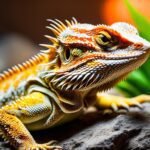
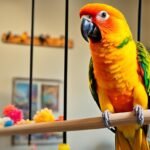
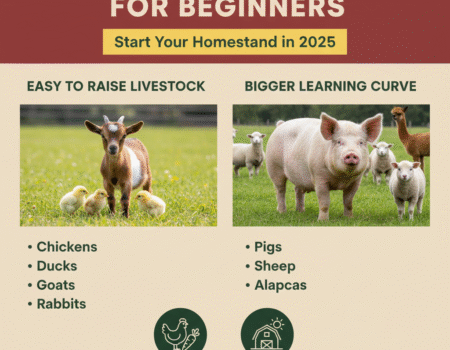
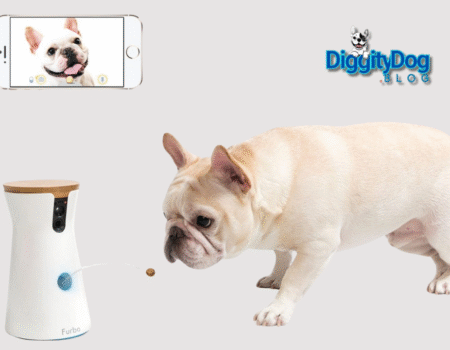
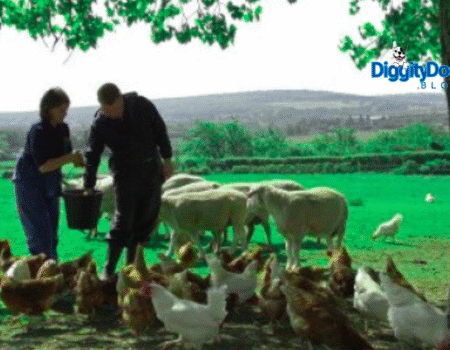
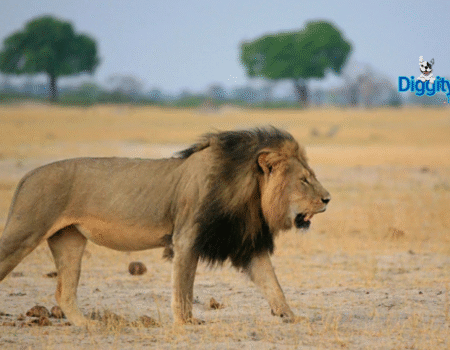
No Comment! Be the first one.